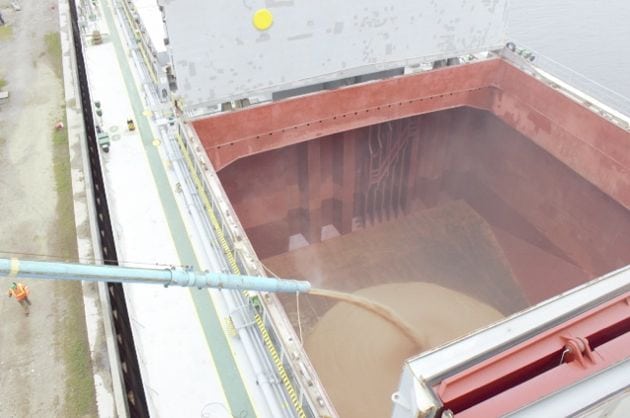MarketsFarm — There won’t be any vessels laden with grains and pulses departing from the Port of Churchill until next month, according to Murad Al-Katib, CEO of AGT Foods in Regina.
“We’re in the early days of harvest, so it would be very normal to expect the first vessels to arrive in the first half of September,” said Al-Katib, who’s expecting a September-October shipping season.
“Things are looking good on yields and quality, so there should be an opportunity to durum, lentils, and maybe [Canada Western Red Spring wheat] as well, going through Churchill,” he added.
Read Also

Senft to step down as CEO of Seeds Canada
Barry Senft, the founding CEO of the five-year-old Seeds Canada organization is stepping down as of January 2026.
At this time, Al-Katib didn’t say how much in grain and pulses would pass through Churchill this year, noting that it’s a public-use port.
“It depends on who steps up and does what. We have the capacity and space,” he said, noting the railway is ready for this season’s shipments.
“There was a good, slow melt in [northern] Manitoba this year, so the tracks are in good shape.”
The latter was a grave issue for the port’s viability a few years ago, when sections of the railway south of Churchill were washed out by high water. Omnitrax, the line’s owners at the time, was reported to have refused to foot the costs for repairs without sufficient government assistance.
After three years of no rail traffic to or from Churchill, Omnitrax sold the line to an AGT-led business consortium, the Arctic Gateway Group, which includes a number of northern Manitoba communities.
While Churchill is plagued by a much shorter shipping season, and a rail line hampered by the shifting whims of the northern tundra, the port is much closer to major export destinations such as in Europe, relative to ports in southern Canada such as Thunder Bay.
During the 2019-20 marketing year Churchill there were 137,200 tonnes grains and pulses that passed through its port. Of that, almost 75 per cent was amber durum and the rest was lentils, according to the Canadian Grain Commission. In 2015, the year before the line was closed, 184,600 tonnes of grain were shipped via Churchill.
Ten years ago, about 659,000 tonnes were shipped through the port, according to the Hudson Bay Route Association.
That said, Churchill pales in comparison to a year-round port such as Vancouver, or a spring-to-fall port such as Thunder Bay — but Canada’s only major northern port has an important niche role.
“With a big crop coming, we need all of the ports in Canada. This is why we believe Churchill is a great surge port for the Canadian grain sector,” Al-Katib said.
— Glen Hallick reports for MarketsFarm from Winnipeg.

















